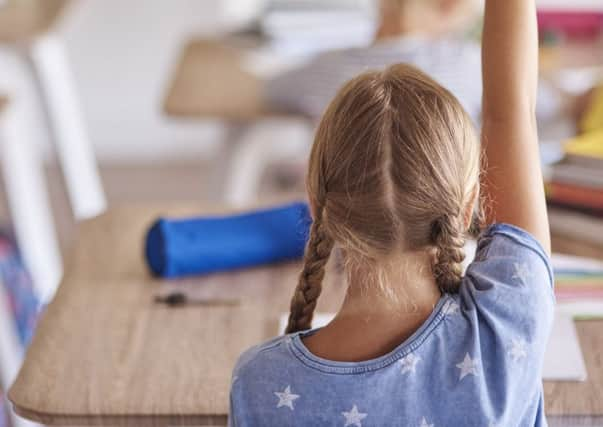Cameron Wyllie: Why we must radically rethink education


Scottish schools have now been using the Curriculum for Excellence as the basis of their teaching for eight years, after a lengthy gestation period which began in 2002 with the “National Debate on Education”. During that long process, the ideas of this new curriculum appeared to many to signal a new era in Scottish education, which was perceived as having become stale and complacent, resting on the laurels of an historic reputation it no longer deserved.
Instead of the narrow road of scholarship, Scottish school pupils were to be educated towards the “four capacities” – to become “responsible citizens”, “successful learners”, “effective contributors” and “confident individuals”. How good that sounded – how desirable it seemed as an antidote to the many malaises affecting our young people at the start of the 21st century. We could look forward to young Scottish citizens who were ready to contribute to their society, who had confidence, who were individuals but could work in teams and who had learned … successfully.
Advertisement
Hide AdAdvertisement
Hide AdIf we had all stopped and thought, then perhaps two problems might have been identified. The first was the choice of language used to describe the capacities themselves. Of course they sounded good, but might not other capacities have
been equally desirable – say, “creative thinkers” or “healthy persons” or “kind people” etc? And the second, much more importantly, was the issue of how much time should be spent trying to achieve each of the capacities. I mean, what exactly is an “effective contributor” and how do you manage to measure whether or not wee Jimmy MacDonald’s become one? These four ideals were presented as equals. Might not someone have stopped and said “but surely, the greatest of these is successful learning”? Aren’t schools really about learning, and trying to learn well with teachers providing knowledge and encouraging skills? And if schools are going to do all these other things, what are parents meant to be doing?
But CfE has ground on, being the basis for the education of nearly a whole school generation and yes, it may well be that across the piece young Scots are more articulate and more outward-looking than their predecessors. However, every schoolchild only spends 22 per cent of their time at school across each year of their young lives and it would appear that the push towards citizenship and confidence is at the expense of old-fashioned learning - not declining Latin verbs (though no harm in that for some students) but fairly basic standards of literacy and numeracy, certainly as suggested by the latest statistics.
Yes, Scotland needs to enable its young people to think for themselves and to cooperate with others and yes, young people need to want to go to school, but great teachers over the decades have been able to make hard basic learning fun;
and if Scotland is crying out for engineers, they have to be good at maths.
So the time has come for a radical re-evaluation of what the purpose of sending children to school is. Such thinking needs to be encouraged by politicians who themselves need to recognise the political capital to be gained from a new
national strategy – huge numbers of parents throughout Scotland are alarmed by the content and pace of their children’s education and by the failure of politicians and ‘educationalists’ alike to consult with them about what they want their children to achieve at school.
There are other places, and other people, who can help make children succeed in other areas but parents depend on teachers to help their children read and write and count and then develop these skills in later years to the highest order they can achieve.
Advertisement
Hide AdAdvertisement
Hide AdThe teaching profession in Scotland is full of highly skilled practitioners who have dutifully followed government policy as laid down by Education Scotland for decades, themselves little consulted, in practice, as to the way forward; many of them are losing heart.
Scotland needs again to have truly successful learners but it will require brave political thinking to achieve.
This week I have been …
Reading …
Shiva Naipaul’s ‘Black and White’, a study of the 1978 Jonestown Massacre in Guyana in which he sets the terrible events in the context both of what was happening in South America and in California, from which Jim Jones and his ‘People’s Temple’ church had come to set up their new home. Naipaul is a great journalist and – certainly in its observations on what we now would call ‘New Age’ philosophies – brings humour to this grimmest of subjects.
Listening …
To ‘The Wilds’ by Henry Jamison, a young songwriter from Burlington, Vermont. These are great songs with strong, clever lyrics and a pleasing view of human relationships. The whole album, though it’s not always about happy things, is imbued with a summery feel – try ‘Real Peach’.
Watching …
The Russian film ‘Loveless’ directed by Andrey Zvyagintsev. The title is a clue as to the tone of the film, which is about a married couple who hate each other and who, in the middle of a ghastly divorce, try to deal with the disappearance of their only son. Maryana Spivak, as the mother, is brilliant as a feckless, doomed person lost in her own pleasure-seeking. Watch it, then see ‘Paddington 2’ to restore your faith in humanity.
